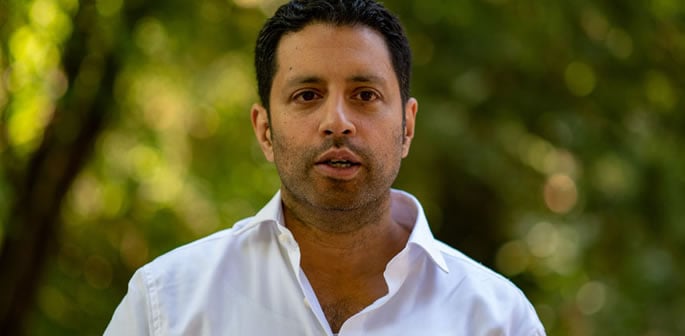The new law will cover nearly all aspects of university life,
Students should be prepared to encounter views they find “shocking or offensive”, according to Dr Arif Ahmed, the director for freedom of speech at the Office for Students (OfS).
As the OfS releases new guidance on England’s incoming free speech law, Dr Ahmed said controversial views were part of the learning process.
He said: “You should expect to face views you might find shocking or offensive, and you should be aware that’s part of the process of education.”
Dr Ahmed stressed that universities must allow the expression of any view, however offensive, so long as it does not cross legal boundaries such as harassment or unlawful discrimination.
The new guidance follows a growing focus on freedom of expression within higher education, culminating in legislation set to come into force this August.
The Higher Education (Freedom of Speech) Act will impose a legal duty on universities in England to actively promote and protect free speech and academic freedom.
Failure to comply could see institutions fined millions.
Dr Ahmed said a recent OfS poll found that around 20% of academics do not feel free to discuss controversial topics in their teaching. Subjects including race, racism, sex, and gender were cited as particularly sensitive. Women were especially likely to feel restricted.
The new law will cover nearly all aspects of university life, including protests, teaching, training, and debates.
It also empowers the OfS to intervene directly in cases where it believes institutions have breached their responsibilities.
In March, the University of Sussex was fined £585,000 after the OfS ruled that its trans and non-binary equality policy had a “chilling effect” on freedom of speech. That decision followed the 2021 resignation of philosophy professor Kathleen Stock, who left after protests over her gender-critical views.
The university is currently challenging the fine in court, arguing that the OfS investigation was flawed.
Universities UK, which represents 141 institutions, welcomed the new guidance.
A spokesperson said: “We strongly agree that universities must be places where free speech is protected and promoted.”
But student representatives have pushed back. The National Union of Students UK (NUS UK) dismissed the guidance as fuelling unnecessary culture wars.
NUS UK president Amira Campbell said: “This is just more nonsense playing into the so-called ‘culture wars’.
“Students and academics overwhelmingly already believe that universities and students’ unions know how to do freedom of speech, and there is already plenty of legislation around the issue.
“I am disappointed in the governing bodies who have prioritised this over protecting and supporting marginalised students.”
Dr Ahmed rejected claims that the issue had been exaggerated.
He said students should not expect universities to shield them from opinions they dislike:
“Universities cannot sack a lecturer simply because that person expresses views students find offensive, shocking, controversial or disturbing – and that’s essential to academic freedom.”
The guidance also directs universities to actively support staff whose views provoke protests, and not to hesitate in defending them publicly.

Edward Skidelsky, philosophy lecturer at the University of Exeter and director of the Committee for Academic Freedom, said the guidance was “reassuringly robust”.
He added: “It makes clear that academics and students may not be penalised for speaking their mind.”
However, questions remain about how universities should respond when academics resign over campus pressure.
Professor Jo Phoenix recently won a constructive dismissal case against the Open University after facing harassment over her gender-critical beliefs. She welcomed the new guidance but warned of deeper cultural problems.
She said:
“It’s like bringing a bucket of water to a burning fire.”
Another tribunal, set for 2026, will hear a case from an academic who claims he was driven out after students boycotted his lectures over comments on diversity initiatives.
The new law introduces a two-track complaints system.
Students who believe their rights have been infringed will go to the Office of the Independent Adjudicator. Academics and invited speakers will be able to take complaints directly to the OfS.
The Union of Jewish Students expressed support for the guidance. They welcomed explicit recognition that Holocaust denial is not protected speech and that institutions must safeguard Jewish students against antisemitic harassment.
Dr Ahmed acknowledged that universities had requested clarity.
He added: “The aim here is not to spark controversy.
“It’s to protect the basic principle that education should include hearing things you may not want to hear.”
The law will come into effect this summer.
For students returning to university or starting their first year, the immediate impact may not be visible, but the legal and cultural framework around what can be said, taught, and challenged on campus is undergoing its biggest shift in decades.






























































